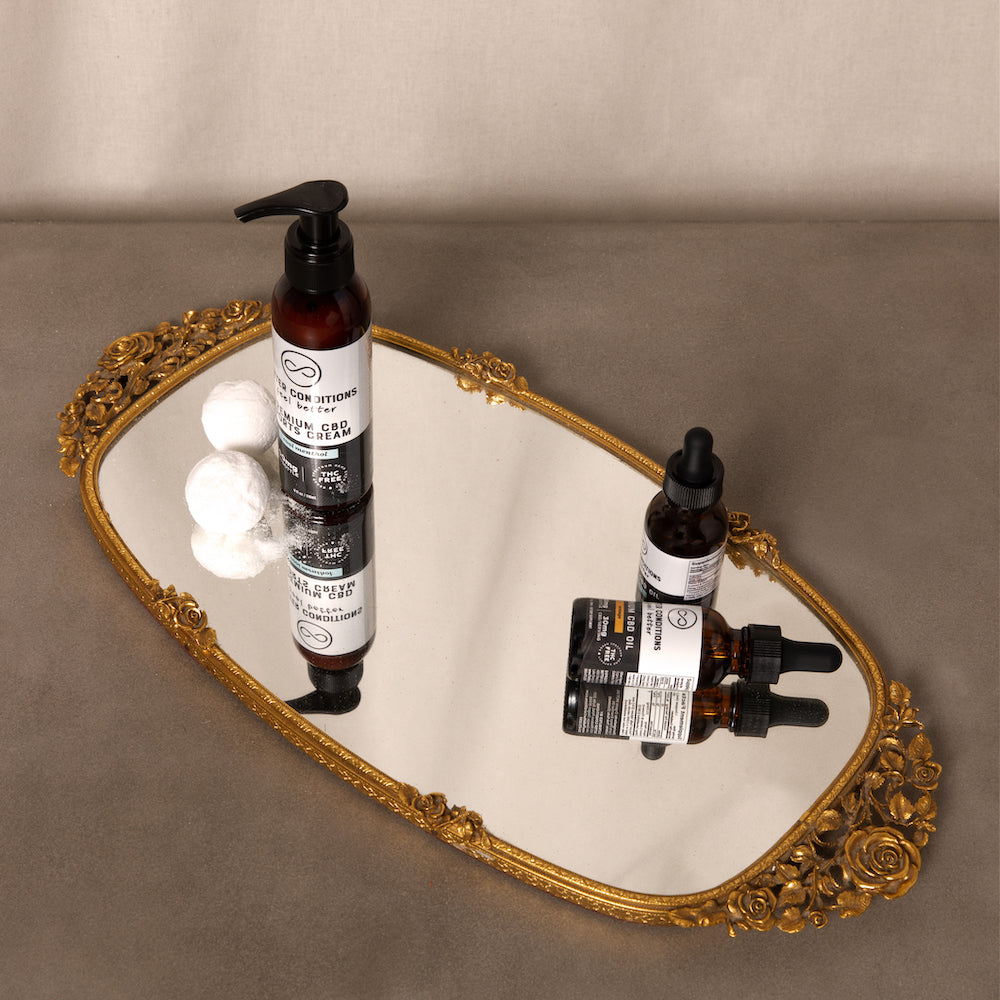Seasonal Affective Disorder
With winter well under way, it’s important to try and find some sunshine wherever possible; And I don’t mean that literally - although that would be nice too. I’m talking about reaching for whatever fragments of theoretical sunshine you can find, whether that be a physical product that will boost your mood, a newfound hobby or quality time with loved ones. Figure out which small acts bring energy, positivity and joy to your life and add those to your rainy day fund for future use. Winter can be tough on people, but there are always options to help adjust.
What is Seasonal Depression?
Seasonal depression or seasonal affective disorder is often abbreviated as SAD, and that’s sadly not just a play on words. To put it simply, seasonal depression is a type of depression that correlates with changes in the seasons. Seasonal affective disorder is less common in the spring and summer months when the sun provides more daylight, general warmth and, of course, vitamin D.
The most common type of SAD is winter depression which typically lasts from fall through the winter months. I’m sure we can all agree that day to day tasks are made a little harder when coupled with cold temperatures, chilly winds and early sunsets. Energy can be low and motivation is harder to find. There is not really one specific cause of seasonal depression, as depression is a case-by-case situation. However, there are a few things thought to contribute:
- Circadian Rhythm - A decrease in daylight can disrupt your body’s internal clock and make it hard to maintain a stable sleeping schedule which can affect overall quality of life. Lack of sleep or a stable sleeping schedule can wreak havoc on day-to-day life and, ultimately, result in depression.
- Serotonin Levels - A decrease in sunlight can cause a drop in serotonin, a naturally-produced, mood-stabilizing brain chemical. Without serotonin, morale can drop and it is difficult to maintain a positive outlook. Low serotonin levels are often linked to depression.
- Melatonin Levels - The change of seasons can disrupt the body's melatonin production which affects overall mood and sleep. As I mentioned before, lack of sleep can make it hard to maintain daily life which can result in depression.
Who can be Affected?
To answer this simply: anyone. An estimated 10 million Americans suffer from recurring Seasonal Affective Disorder and another 10-20% suffer from mild SAD. To be clinically diagnosed with seasonal depression, one must meet criteria for major depression coinciding with specific seasons for at least two years. Based on this criteria coupled with the fact that people experiencing depression seldom reach out for help, it can be assumed that there are many more cases than what is recorded.
I think I can speak for all my fellow Oregonians when I say that seasonal depression hits a little harder when you live in a state where winter lasts for an eternity. However, that’s not the only factor in play. Seasonal depression can affect anyone who has ever experienced any type of depression, anyone who has a family history of depression or mental illness, as well as anyone with immune deficiencies; just to name a few other causes.
How to get relief from SAD
This disorder is a type of depression and should not be brushed off as winter blues or a standard lazy day. Depression of any kind can lead to many other physical and mental complications, some being long-lasting or permanent. It is important to get the proper help in order to combat SAD. Common treatments include light therapy, counseling, medication, or vitamin D supplement. However, new research is pointing to CBD for extra help.
How can CBD help?
CBD is a plant-based powerhouse when it comes to mood stabilization. CBD has also been shown to reduce anxiety and depression by interacting with the endocannabinoid system (ECS). The endocannabinoid system is present in every human body regardless of whether or not a person uses CBD. It is responsible for regulating functions such as sleep, appetite, mood, and memory.
The ECS is made up of endocannabinoids, receptors and enzymes. Endocannabinoids are like cannabinoids, but they are produced by the human body. It is believed that the cannabinoids in CBD interact with the ECS and target the serotonin (5 HT) receptors in the human body. By doing so, mood is stabilized by serotonin production--which can diminish depression.
As I mentioned before, the endocannabinoid system plays a role in maintaining certain body functions such as sleep and regulating circadian rhythms. CBD’s interaction with the endocannabinoid system has been shown to aid in better sleep. Getting out of bed and staying motivated can often be made easier when well rested.
We’ve gone over how CBD can boost serotonin and stabilize sleep, but if that’s not enough, we can also offer help with melatonin production. To ensure that your sleep isn’t affected by the change in daylight, take our CBD Softgels with Melatonin. These softgels offer all the benefits of CBD with the added bonus of melatonin to aid in sleep. Not only do these help you fall asleep, but they also help you have a great night's sleep. CBD has also been shown to help improve brain function, making it easier to focus and maintain motivation. It seems to lineup well with the assumed causes of Seasonal Affective Disorder.
We know how hard it can be to stay positive and motivated in the winter. We only want to help by providing you all with the best information and top-of-the-line products to get you through all the highs and lows. Here’s to ending this year on a high note.


